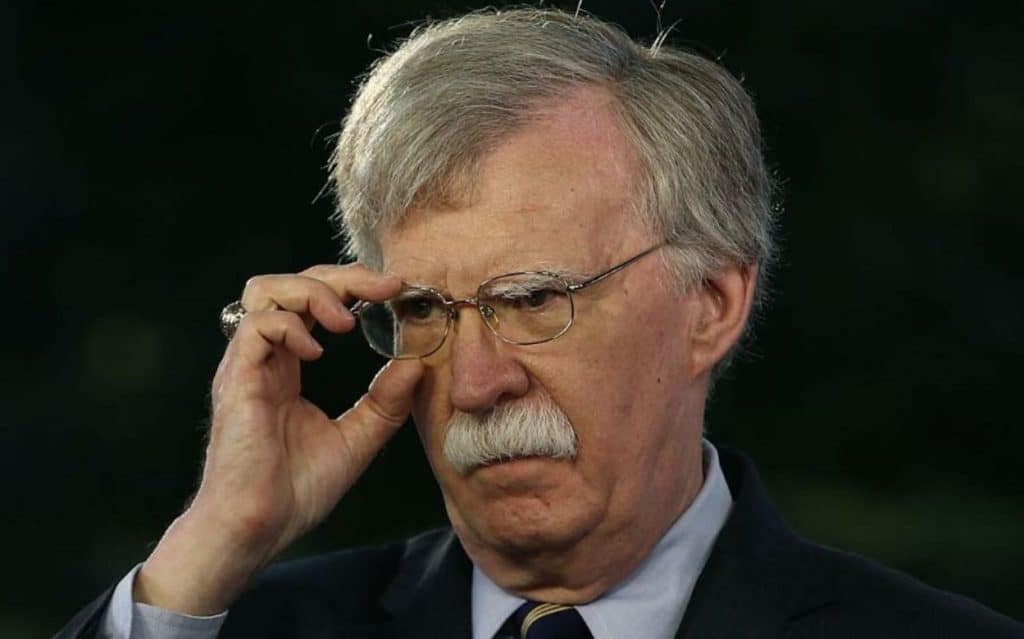By Denis Korkodinov
The foreseen meeting of representatives of the United States, Russia and Israel could lay the foundation for the policy of ousting Iran from Syria. The trilateral meeting will take place in Jerusalem in late June 2019. It will be attended by Russian Security Council Secretary Nikolai Patrushev, US National Security Advisor John Bolton and their Israeli counterpart Meir Ben-Shabbat.
The format of this event is unusual. The representatives of three countries that have strategic interests in the Middle East will gather to work out measures aimed to neutralize Iranian participation in the Syrian theater of operations. The fact that Russia, formally an ally of Iran within the framework of the Astana and Sochi formats, will participate in the Jerusalem meeting, unequivocally informing the ayatollah regime that it does not need to preserve allied relations, makes the situation even more piquant.
It is worth noting that Moscow expressed support for the actions of Tel Aviv, aimed at attacking Iranian targets in Syria. However, Israeli Prime Minister Benjamin Netanyahu, one of the initiators of the summit in Jerusalem, aims to expand cooperation with the Kremlin in order to achieve the neutralization of Iran.
Israel is concerned about the fact that Moscow is still in alliance with Tehran. At the same time, the Israelis intend to demand to their Russian colleagues to create obstacles to the Iranian presence in Syria. In particular, the talks could be focused on forcing the withdrawal of Iranian proxies and the restrictions on the exchange of intelligence data.
However, Israel is likely to overestimate Russian influence. The fact is that Tehran does not trust Moscow. The Ayatollah regime doubts the reliability of its partner, therefore it is unlikely that Iran will fulfill the conditions proposed by the Kremlin.
In addition,there is not trust among Russia and Israel. For example, Tel Aviv imputes Moscow with the fact that it allegedly repeatedly violated the agreements reached earlier on deterring Iranian forces in Syria at a distance of 60 kilometers from the Israeli border. In this regard, Israel considers itself entitled to deliver rocket-bombing attacks on Iranian targets, which are located in an area where they cannot be in accordance with the guarantees of Moscow.
Washington has joined the Israeli demands and is putting pressure on Russia, forcing it to influence Iran. This creates an extremely difficult situation for Moscow as part of the international trio (USA-Russia-Israel), while in reality it is in opposition to the other two participants.
However, American capabilities in Syria are also limited due to the fact that Washington has a small military contingent in the region, which is extremely insufficient to resist the Russian or Iranian forces. In this regard, the only option for influencing Moscow is diplomacy.
The White House administration will most likely attempt to endow Russia with unique powers to organize the negotiation process between Iran, on the one hand, and Israel and the United States, on the other. This will allow Washington to avoid a direct clash with Iranian forces in Syria, and in case of failure of the negotiation process, to blame Moscow, presenting it as an unreliable intermediary.
With high probability, Russia will agree to play the mediating role offered by the United States. This is due to the fact that Moscow is seeking to prevent the strengthening of the American contingent of troops in Syria, which would be quite expected if Russia refuses to negotiate with the Ayatollah regime. And so Moscow is forced to accept the conditions of the United States.
(The views expressed in this article belong only to the author and do not necessarily reflect the views of World Geostrategic Insights)







